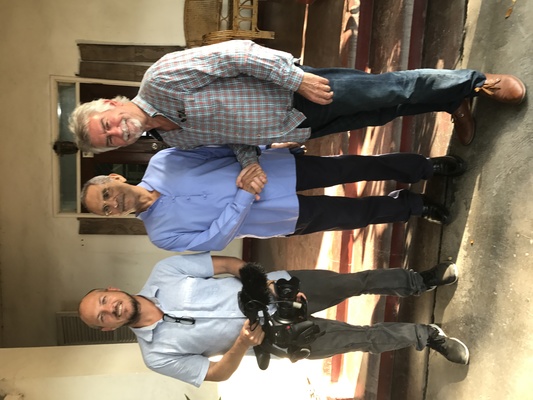By Phil Jarratt
Back in 1973 in Portugal I heard from a local friend about the island of Timor at the bottom of the Spice Islands, which had been a colonial outpost the Portuguese were in the throes of losing amidst bloodshed in paradise.
I decided I wanted to go there and the following year attempted unsuccessfully to get a visa.
I guess foreign journalists were not wanted at that time, and indeed the killings at Balibo followed just a year later.
Now I’m finally here, and the independent nation of Timor Leste has been at peace for more than a decade, although just this morning a few blocks from our hotel police fired their guns to disperse a student protest over government excesses.
So in some respects it might be an uneasy peace, but everywhere we have pointed our cameras so far, we have seen the smiling faces that are evidence of a new and vibrant culture that is taking the country forward, away from the dark shadows of 40 years of violence.
Just hours after our arrival in Dili, we were honoured with a long and expansive interview with Excellencio Jose Ramos-Horta, the Nobel
laureate who has been president, prime minister and the cornerstone of his country’s long walk to freedom.
A hero of mine for decades, Ramos-Horta in person did not disappoint, a dapper gentleman with a ready smile, whose responses to my questions were a delicate balance between good humour and profound wisdom.
At the conclusion of the interview at his seafront offices, the most famous man in the country posed for selfies with filmer Shaun Cairns and myself, then climbed into his Mini Moke and sped off to his next engagement.
But most of our subsequent interviews and filming has been with ordinary Timorese with extraordinary stories, because virtually no one in the world’s smallest and youngest island nation has been untouched by the bloody fight for freedom, even those who have been born since the bloodbath surrounding the referendum of 1999, which finally ended the Indonesian occupation, and in whose hands the future now lies.
Working with, and on behalf of, Timor Leste’s leading human rights organisations, we have heard stories that bring tears to my eyes just recalling them now, and yet they are not war yarns of bravado – they are lessons in humanity.
Saturday night is party night in Dili, with music in the streets and young people dancing on the beachfront.
We were fortunate to be taken to a benefit concert for the pioneering Australian journalist and activist Jill Jolliffe, who is now ailing.
People spoke movingly about Jill’s good works, but the night was given over to a constant rotation of Timor Leste’s best and most vibrant musicians and singers.
The quality of the performances on a state of the art outdoor stage and sound system was one thing, but what really captivated me was the power of the songs and the poetry, almost exclusively about the fight for freedom.
Sung in their native Tetum, the words meant little but the passion of the delivery meant everything, with the big crowd joining in and power-fisting the night air from reggae to rap, ballads to spirituals.
It was like a refreshing blast from the ‘60s – with less feedback!
We’ve been in the mountains too, travelling for hours on pot-holed goat tracks past the one-time hideouts of the resistance movement to reach small villages where we’ve been welcomed into humble dirt floor homes where plates of delicious local foods and pots of home-grown coffee have been laid out for us.
Travelling with human rights workers who have been a lifeline for these people has given us a privileged insight into both the poverty of the country and the nobility of those who have next to nothing, but will willingly share it.
As I write this, my week in Timor is coming to an end.
It has been an eye-opener in many ways I could not have imagined, but I know that long after this trip is over, I’ll have the smiling faces of Timorese children stamped on my brain.
As Jose Ramos-Horta told us: “Despite everything that has happened, our people are the happiest in the world, and it is written on their smiling faces everywhere you look.”




![[READER COMPETITION] – Win tickets to the Queensland Ballet at The J Theatre](https://noosatoday.com.au/wp-content/uploads/2025/07/Queensland-Ballet-100x70.png)



